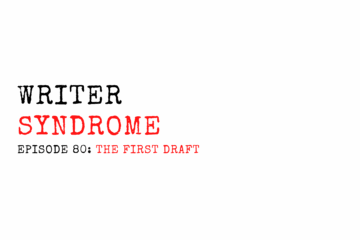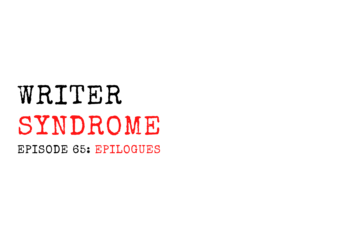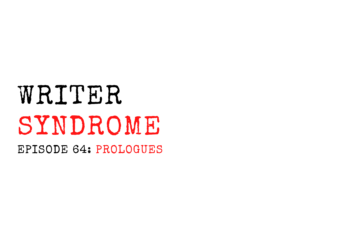I’ve been very focused on pacing as of late. Not like doom pacing around the living room thinking about the state of the world, but story-telling pacing. How structure and word choice impact the pace of action and reader enjoyment. I have no issue with the slow-burn story if it serves the story, but generally I’m a fan of well/quick paced stories that start, get moving and don’t stop. That doesn’t mean it’s action all the time, but dialogue heavy scenes and tight description can also have pacing that keeps the reader engaged.
I recently watched a few movies from the 80’s, The Fly, Beetlejuice and The Burbs (it’s Halloween time). All of them clocked in at an hour and a half (in my opinion the sweet spot for movies). Each had a nice pacing to them, without losing me (The Fly is a little clunky to start and has some quick time jumps but it’s forgivable). As I watched these classic films I thought what is making these work? It’s the leanness and only getting to what is important for the characters and scene to move the story along. Or for The Fly when can we get to that Cronenberg body horror moment we’re all waiting for!
On the flip side, I just finished a fairly generic thriller with a Jack Reacher type character as the lead. It was perfectly fine as a military / crime thriller, checked all the boxes and was a concealed story. But I found it started to drag late in the second act, and I wondered why. Then I realized we’d shifted into author research info dump time. Where characters are asking more and more questions which lead to info dumps of technical terms and research. I’ve noticed a lot of thrillers do this, which, to some extent is expected for the genre. People like those details, but sometimes it’s a drag on the story and, I think, pulls the reader out (in this case the reader is me). Since I write in the thriller genre I’ve been paying more attention to this and in my own writing. How much is too much detail? A question I ask with each scene I write. What gets me through it is then asking what information is crucial for the reader AND characters to know for the story to move along? I’m currently working on my second book which will have some technical / hacker situations. So I’m facing these questions as I write, self-editing, and thinking what is the most important information to convey? Something I’ll want beta readers to focus on when the time comes.
I reference Ready Player One quite a bit as inspiration for a well paced story. It’s a fun, tight adventure that moves but even the calm moments balance out the action. It gets it right. For HOST, I wanted the story to move along at a similar clip. The third act maybe a little too fast (but I find that to be fairly common), and I refrained from getting too into the weeds of technical jargon. I wanted enough to make it feel like the characters knew what they were talking about, but not so much to lose the reader. Also, if all the characters know the technical terms, how much of that would they repeat to each other? They wouldn’t. They’d just get to the point or solutions to the problem at hand.
Technical and research jargon dumps can slow down a story, but so can weighted dialogue, scene description beyond what the character is focused on, and knowing when and where a scene should be placed. For HOST I worked with my editor on having a quick paced story. Short chapters, bouncing between POVs where the reader didn’t forget about a character or their last position, and keeping dialogue exchanges brief and lean. Having characters only say what was important in the moment, and conveying the information needed for everyone involved (including the reader).
Pacing to me and the genre I write in is one of the most important aspects of the story from a structure standpoint. Getting into the action (actual action or dialogue) and getting out while not losing the reader I’m finding is a balance. Some scenes need to breath but that doesn’t mean they need to get hung up and drag with unnecessary details. Something I’m paying even more attention to with my second book. It’s going to be more of an action thriller, cat-and-mouse, type of story. I want the pacing to reflect that tension of a single decision being the wrong, and possibly deadly, one. We’ll see how I do.


